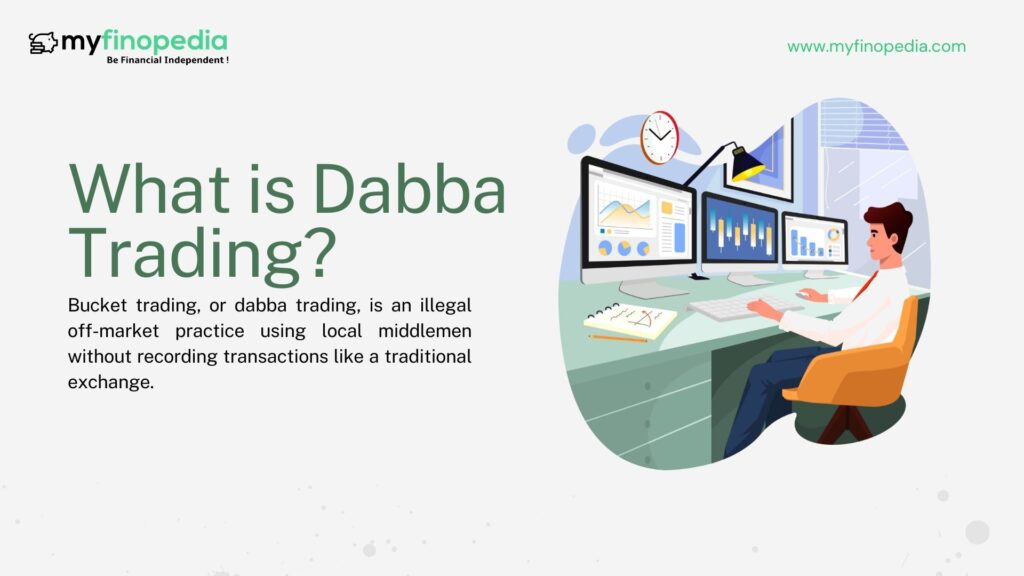Hasn’t the word “Dabba” always been associated with foulness? As such, Bucket trading also known as dabba trading, is a form of unlawful off-market trade that is common in some areas. Trades are executed through a local middleman who runs a parallel trading system locally, usually not keeping any records of the activities as opposed to a regular stock exchange. This enables traders to make predictions about changes in stock prices without having to possess or trade the securities on an established exchange.
– Works
- An official stock market is mimicked by a fake exchange set up by the middleman or “dabba operator” in dabba trading.
- Orders are placed by traders with the operator, who keeps track of these transactions in-house rather than sending them to the official market.
- The operator typically assumes the threat by gambling with the investor or combines orders to buy and sell privately.
- Bypassing governmental monitoring, profits and losses are handled straight among the investor and the operator, frequently in cash.
– Is it illegal
Yes, the majority of nations prohibit dabba trading. It avoids taxes, transaction fees, and oversight from regulators by working around authentic exchanges, which is against securities laws and regulations. This puts traders at serious danger of fraud and operator default, which might result in large financial losses for the government and even the investor.
– How to do that
- Locating a dabba operator is the first step in dabba trade, which is typically done through unofficial networks.
- The operator rates and conducts trades off-market, investors agree on the conditions. In order to prevent regulatory agencies’ discovery, payments are usually completed in cash.
- This entire operation is illegal packed with danger.
– Conclusion
Dabba trading provides an alternative to traditional pathways for investing in the stock market, but it comes with hazards and legal consequences. Although the limelight of rapid profits and cheap expenses may make it sound alluring, but the practice is risky because to its illegality, lack of regulation, and fraud risk. The presence of legal trade channels guarantees a safer investment environment by offering transparency with regulations.






